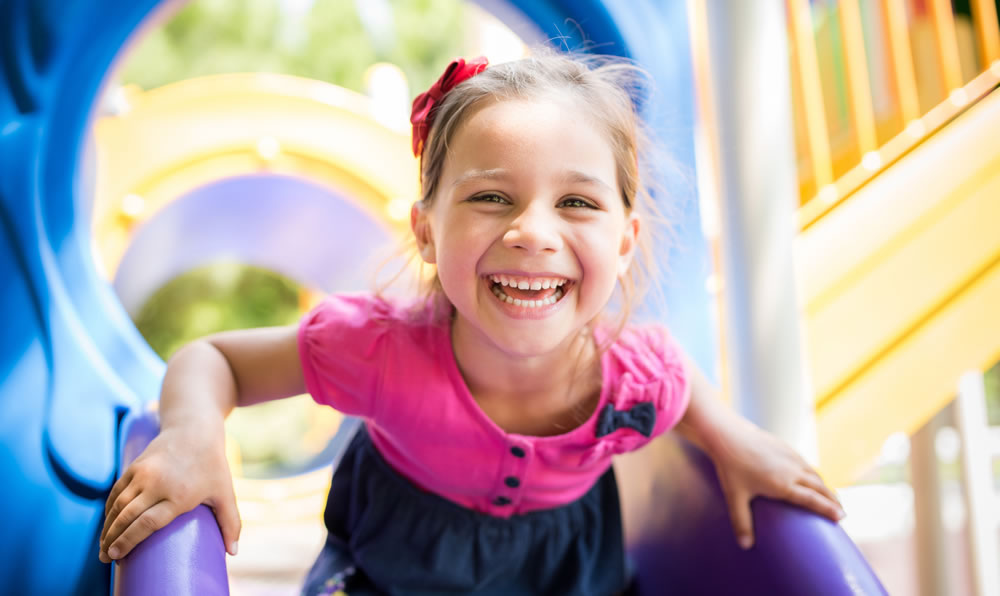Research: How play environments impact child health
Published on Tuesday, 22 September 2020
Last updated on Wednesday, 21 October 2020

With pre-school aged children spending considerable periods of time in early education settings, the importance of the environment in which they play is increasingly in the spotlight.
To this end, data from more than a million Australian and Welsh children will be examined to understand how the built environment impacts child health and obesity.
The BEACHES project, a collaboration between universities in Australia and Wales, being co-led by the Australian Telethon Kids Institute, will examine how places and spaces created and modified by people- such as buildings, parks and transport systems- influence physical activity and obesity levels among children.
The researchers will also aim to identify differences between the two counties and examine how challenges can be overcome to create more family-friendly environments for healthy living.
Project co-lead Associate Professor Hayley Christian, from the Telethon Institute said the BEACHES project was unique in its focus on children and early prevention.
“Childhood obesity and physical inactivity are two of the most significant risk factors for the prevention of non-communicable diseases, yet a third of Australian and Welsh children are overweight or obese and only 20 per cent of Australian and UK children are sufficiently active.
“Findings from the study will better inform planning and practice strategies to prevent the rise in childhood obesity via livable, family-friendly built environments that promote healthy beginnings,” she said.
In addition, a recent systematic review conducted by researchers at the University of South Australia demonstrated the importance of innovative natural play spaces in early education centres and schools.
Led by UniSA master’s student Kylie Dankiw and researcher Associate Professor Katherine Baldock, the review explored the impact of nature play on the health and development of children aged 2-12 years to support investment in infrastructure to provide opportunities for children to engage in nature play.
"In recent years, nature play has become more popular with schools and child care centres, with many of them re-developing play spaces to incorporate natural elements, such as trees, plants and rocks.
But as they transition from the traditional 'plastic fantastic' playgrounds to novel nature-based play spaces, they're also looking for empirical evidence that supports their investments," Dankiw says.
"Our research is the first to rigorously, transparently and systematically review the body of work on nature play and show the impact it has on children's development. We're pleased to say that the findings indicate a positive connection between nature play and children's development.
"For early childhood educators, health practitioners, policymakers and play space designers, this is valuable information that may influence urban play environments and re-green city scapes," she said.
Comprising a systematic review of 2927 peer-reviewed articles, the research consolidated 16 studies that involved unstructured, free play in nature (forest, green spaces, outdoors, gardens) and included natural elements (highly vegetated, rocks, mud, sand, gardens, forests, ponds and water) to determine the impact of nature play on children's health and development.
It found that nature play improved children's levels of physical activity, health-related fitness, motor skills, learning, and social and emotional development. It also showed that nature play may deliver improvements in cognitive and learning outcomes, including children's levels of attention and concentration, punctuality, settling in class (even after play), constructive play, social play, as well as imaginative and functional play.
"Nature play is all about playing freely with and in nature. It's about making mud pies, creating stick forts, having an outdoor adventure, and getting dirty," Dankiw says.
"These are all things that children love to do, but unfortunately, as society has become more sedentary, risk averse and time-poor, fewer children are having these opportunities.
"By playing in nature, children can build their physical capabilities - their balance, fitness, and strength. And, as they play with others, they learn valuable negotiation skills, concepts of sharing and friendships, which may contribute to healthy emotional and social resilience."
Related Articles

Early literacy skills are a pathway to reading
Repetitive rhymes, silly songs and shared books are not only fun for young children, they also help to develop the early literacy skills necessary for learning to read.

Making sense of child temperament
How early education teachers can support children to better manage their emotional responses, by understanding the unique temperament of each child in an early learning setting.

Are children hardwired for revenge?
Children are hardwired for revenge and need to be taught how to repay kindness and generosity according to research from the University of California. This article considers the implications of this research for educators and offers strategies for teaching kindness to preschoolers.
